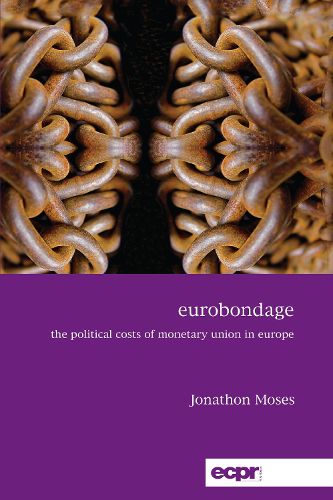Readings Newsletter
Become a Readings Member to make your shopping experience even easier.
Sign in or sign up for free!
You’re not far away from qualifying for FREE standard shipping within Australia
You’ve qualified for FREE standard shipping within Australia
The cart is loading…






This book examines the political costs of monetary union in Europe. It does so by gauging the degree to which four small European states - Iceland, Latvia, Hungary and Ireland - employed their monetary policies in response to the financial crisis. Contrary to popular and academic perception, Moses finds that small states in Europe still enjoy monetary policy autonomy, and this autonomy was used to prioritise the needs of domestic constituents over those of international markets. Eurozone member states, by contrast, pursued policies that prioritised the (long-term) needs of international lenders and European institutions, at the (short-term) expense of their own constituents. By illustrating the degree to which monetary policy autonomy still plays an effective role in responding to economic shocks, this book documents the substantial sacrifices that states have made in joining a suboptimum currency area. These are the political costs of monetary union in Europe.
$9.00 standard shipping within Australia
FREE standard shipping within Australia for orders over $100.00
Express & International shipping calculated at checkout
This book examines the political costs of monetary union in Europe. It does so by gauging the degree to which four small European states - Iceland, Latvia, Hungary and Ireland - employed their monetary policies in response to the financial crisis. Contrary to popular and academic perception, Moses finds that small states in Europe still enjoy monetary policy autonomy, and this autonomy was used to prioritise the needs of domestic constituents over those of international markets. Eurozone member states, by contrast, pursued policies that prioritised the (long-term) needs of international lenders and European institutions, at the (short-term) expense of their own constituents. By illustrating the degree to which monetary policy autonomy still plays an effective role in responding to economic shocks, this book documents the substantial sacrifices that states have made in joining a suboptimum currency area. These are the political costs of monetary union in Europe.